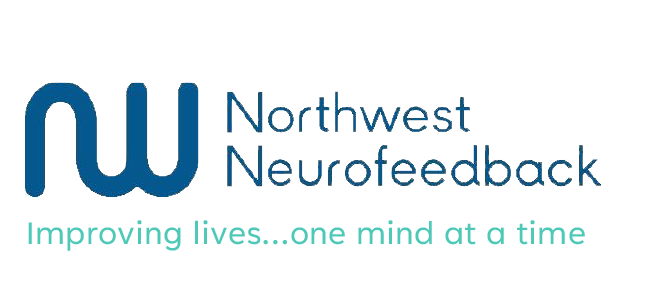FAQ
Who is a good candidate?
Many, but not all, individuals can benefit from treatment. Used indiscriminately, the results will be just that – indiscriminate and less than impressive. In most instances, we can determine if a person is a good candidate by completing an intake evaluation. This allows us to accurately determine what areas of the brain we need to target and how to most effectively and efficiently utilize neurofeedback. However, depending on the symptoms, neuropsychological testing may also be necessary. This would be discussed during the intake, if required.
What is difference between Clinical and Non-Clinical
Non-clinical neurofeedback is a more broad approach, training areas of the brain responsible for maintaining optimal functioning. For example, someone might train to better manage the stressors of day-to-day life; however, is not diagnosed or being treated for an anxiety disorder. This approach does not require significant assessment to accurately determine causation of the symptoms.
Clinical neurofeedback is a necessary approach for those who are experiencing more in depth/intertwined symptoms and/or who have a clinical diagnosis. Individuals who require clinical neurofeedback have been diagnosed with a disorder, typically by a clinical neuropsychologist. This assures appropriate diagnoses, a targeted treatment plan for your individual needs, and ongoing clinical oversight and care.
What ages do you work with?
We work with individuals of all ages. In our program we generally do not see kids under the age of 5 because it tends to be hard for younger kiddos to sit still for neurofeedback. Outside of that, we see individuals of all ages…even well into their 80s!
Is neurofeedback safe?
Yes, neurofeedback is safe for most individuals. Prior to initiating neurofeedback, a thorough intake is completed to make certain there aren’t any reasons not to complete neurofeedback. Certain untreated medical conditions and/or unwillingness of the individual to attend/complete neurofeedback are examples of reasons neurofeedback may not be an option.
Is neurofeedback appropriate for children?
Yes, neurofeedback is appropriate for children! In fact, there is a significant amount of research showing the effectiveness of neurofeedback in treating ADHD, for example.
What happens during a neurofeedback session?
Sessions last approximately 45 minutes. At the beginning of the session small sensors (called electrodes) are placed on the scalp. They do not put any electrical activity into the brain, and we do not have to shave your hair to do neurofeedback! The electrodes read your brain’s electrical activity, which we watch in real time on a computer throughout the session. You, however, are watching a computer “game” that is a simulation of your brainwaves. By seeing this, your brain knows if it is making enough of the appropriate brainwaves and/or too much/too little of the ones that are creating symptoms for you. As your brain creates the brainwave activity desired, the game goes and you hear beeping/music. The auditory and visual feedback allows your brain to learn to create more functional brainwave patterns resulting in improvement in overall functioning.
How many sessions are usually needed?
The number of sessions required varies depending on the reason for neurofeedback. For our non-clinical populations, we typically schedule 20 sessions (twice per week for 10 weeks). For clinical populations, intervention can take anywhere from 30-40 sessions (twice a week for 15-20 weeks). At times, people come back for refresher sessions (we call them boosters), which can be anywhere from 5-15, depending on the reason returning.
What types of changes will I see?
Changes are dependent on target symptoms. Generally speaking, the changes associated with neurofeedback are best described as “profoundly subtle.” That is not to say they are insignificant, but quite the opposite. Over time the brain develops more stable functioning, resulting in improved stability and processing, and, therefore, a reduction in symptoms. When meeting with one of our skilled professionals during intake, the specific changes you can expect will be discussed in detail.
Will the changes last?
Unlike medication, changes from neurofeedback are essentially permanent since the treatment directly impacts neuronal efficiency. Like riding a bike, once you learn the skill, all other things equal, you will maintain that ability regardless of how long it has been since you’ve ridden a bike! As the brain changes with age, especially children, occasional additional training may be needed depending on a variety of factors, including genetics. Likewise, significant changes in your medical and psychological condition may warrant further treatment.
Is neurofeedback covered by insurance?
Generally, neurofeedback is not covered by insurance. Since insurance does not pay for intervention, we provide a prepay discount to individuals doing neurofeedback (or we have payment plans to choose from, as well). We are also happy to provide an invoice for you to submit to insurance and/or HSA, should you desire.
How do I get started?
Getting started is simple…give our office a call and we complete a brief, phone consultation to determine if you might be a candidate for neurofeedback and answer any questions you have. If you are a potential candidate, then we schedule an intake appointment. At that appointment, we complete an intake as well as describe in depth the neurofeedback process. Then we can schedule your intervention! If you are not a candidate, we provide resources/referrals to other interventions/evaluations (for example, if you might need clinical neurofeedback then we refer you to a neuropsychologist for a thorough evaluation).

